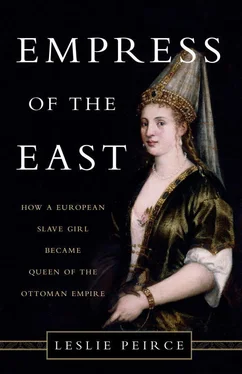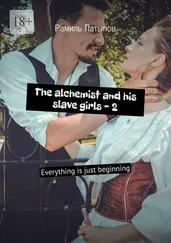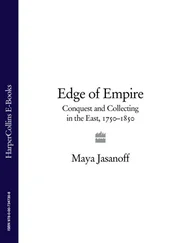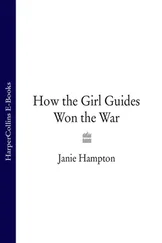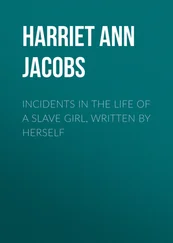elegies for Mustafa, 278–279
Poland, 14, 40, 79, 296,
capture of Roxelana, 16
diplomatic correspondence with, 251–255
Poland-Lithuania, 24–25, 26, 223, 251
See also Bona Sforza; Isabella; Sigismund I; Sigismund; Augustus
power, political and personal
architecture reflecting, 128
Central Asia as source of, 17–18
circumcision celebration as display of, 103–104
domestic politics during Suleyman’s absences, 77–78
hierarchy of the New Palace, 29–30
hierarchy of the Old Palace, 27–29
innovation under Suleyman, 67–68
intimate friendship among males, 168
Mustafa’s awareness of his own, 95–96
of Ibrahim, the grand vizier, 155–156, 160–161
overriding family bonds, 37–38
perception of Ottoman power after the war with Iran, 287–288
royal philanthropy and, 185–187
within the harem, 5–6
See also governance; Roxelana, personal and political power
pretenders, 288, 305, 307
primogeniture, 6–7, 313–314
princes
death of, 85–87
education and management of, 84–85
management training, 220–221
political careers, 214–215
provincial duties, 217
royal architectural philanthropy, 185–186
See also specific individuals
princesses
foreign, 14, 20, 43, 103, 115, 198–200
function and status of, 37–38
Ibrahim’s marriage, 157
marriage of, 157, 185, 205
political role of, 36
stipends and status, 241–243
See also Beyhan; Mihrumah (daughter); Shah Sultan
Privy Chamber terrace, New Palace, 134
procurator of the Sultana, 125
provincial authorities, 77–78
Pseudo Mustafa, 288, 305, 307
raids, abduction of slaves and, 16–17, 21–22
religion. See Christianity; Islam; Judaism
rivalries
among the royal princes, 91–92, 165–166, 281–282, 297
Mahidevran and Roxelana, 90–91, 94–99, 148–149, 165–166, 274–275
Rustem and Ibrahim, 249–250
Rohatyn, Ukraine, 15, 21, 26
Roman empire, 10–11, 14, 48, 66, 73, 103, 159–160, 216, 292
Roxelana, background and origins of
arrival at the Old Palace, 34
as gift to Suleyman, 34, 69–71
capture in Poland, 16, 24–25
Christian background, 4–5
conversion to Islam, 26, 33, 43–44, 291–292
debate over, 4–5, 8–9, 14–16, 25–26
difficulties in, 5–8
Roxelana’s personality and character, 9, 53–54
Roxelana’s philanthropy stemming from slavery, 193
slave trade, 14–15, 21–22
Roxelana, children of
Abdullah, 58, 72, 111, 235
celebrating the circumcision of the princes, 102–106
changing Roxelana’s status at court, 54–57
death of, 72, 305–306
education of, 11, 78, 82–83, 204
marriage of Mihrumah, 205–208
nuclear family, 6, 72
report of, 96–97
Roxelana’s custodial responsibilities, 78
Roxelana’s later pregnancies, 58–59
Roxelana’s presentation to Suleyman, 51–53
Suleyman securing Selim II’s political future, 308–309
See also Bayezid (son); Cihangir (son); Mehmed (son); Mihrumah (daughter); Selim (son)
Roxelana, correspondence
domestic arrangements, 209–210
gifts and messages from well-wishers, 75
historical value of, 8–9
maintaining contact during military campaigns, 141–144, 282–285
pleas for Rustem Pasha’s reinstatement, 284–285
rising standards of living, 262
Roxelana’s improving literacy, 209
Roxelana’s life in the harem, 75–76
Roxelana’s yearning for Suleyman, 73–75
Suleyman and, 283(fig.)
Suleyman’s declining health, 246–248, 259–260
Roxelana, daily life of
declining health and death, 12, 281–282, 299–300, 302–304, 315
domestic responsibilities in the Old Palace, 210–211, 241–242
during Suleyman’s military absences, 75–77
income and daily stipend, 55–57, 77–78, 242
Mahidevran as role model, 57
raising children in Suleyman’s absence, 10–11
residence and domestic responsibilities in the New Palace, 114–115, 121–125, 127–128, 136, 241–242
Roxelana’s quarters in the New Palace, 122–123
Roxelana’s rise in status threatening Mahidevran, 94–95
televising Roxelana’s life, 26
travels through Anatolia, 225–227, 231
Roxelana, early relationship with Suleyman
conceiving her second child, 58–59
Roxelana’s first summons, 52–53
Suleyman’s choice of a concubine, 44–46
Suleyman’s partners after Roxelana, 70–71
Roxelana, marriage to Suleyman
as source of historical debate, 199–200
controversy surrounding, 184–185
domestic conflict, 248
giving women a voice in governance, 122–123
Hafsa’s death, 116–117
honeymoon, 71–72
increasing Roxelana’s status and power, 27–28, 79–80, 100–101, 118–120, 189, 197–198
instigation of, 118–120
intimacy replacing sexual relations, 244–245
precedents for succession, 12–13
private nature of, 115–116
public announcement of, 145–147
Roxelana’s imperial seclusion following, 123–125
Roxelana’s lack of a coronation, 171
Roxelana’s new life in the New Palace, 114–115, 125–126, 128–129
Roxelana’s rise as Suleyman’s favorite, 59–60
securing Selim II’s political future, 308–309
speculation on Suleyman’s affection for Roxelana, 245–246
Roxelana, personal and political power of
Bayezid’s downfall, 307–309
children changing Roxelana’s status at court, 55–57
diplomatic relations with Britain, 251–252
Roxelana’s counsel during Suleyman’s campaigns, 284–285
Roxelana’s exposure to Istanbul, 46–50
Roxelana’s marriage expanding her power, 27–28, 79–80, 100–101, 118–120, 197–198
Roxelana’s part in Ibrahim’s execution, 150–152
Roxelana’s part in Mustafa’s execution, 272–275
Roxelana’s plea for Rustem’s reinstatement, 294–297
Roxelana’s aggrandizement of the royal harem as a political force, 3–4, 12
training in social behavior, 33–34
Roxelana, personal and political relationships
Ibrahim, 32
Ibrahim’s part in Mustafa’s rivalry with Roxelana’s sons, 165–166
Janissaries’ antipathy, 148–149
Mahidevran, 90–91, 94–99, 148–149, 165–166, 274–275
Mustafa, 82–83, 148–149, 275–276
Roxelana, philanthropy of
charitable actions, 9, 289–294
charitable work with slaves, 193
educational benefits of Roxelana’s foundation, 173
endeavors in Palestine, 288–294
historical debate over Roxelana’s mosque, 186
imperial affairs, 127
interest in the training of slaves, 173, 211–212
mosque design, 164–165, 186
political and personal status, 188–189
Roxelana’s concerns with the Janissaries, 240–241
Rumi, Jalal ad-Din, 215, 227–229
Rustem (Mihrumah’s husband), 206–207, 223, 249–251, 258, 268–272, 284, 294–297, 301–302
Ruthenia, 4, 10, 14–16, 21, 22, 25, 26, 31, 83, 96, 134, 147–148, 199, 224, 252, 291, 304
saadet (good fortune), 133
sacred places, 264–265
Safavid state, Iran, 65
peace treaty, 295–296
Selim I’s concerns over the threat of, 65
shi`i Islam, 228
territorial losses, 149–150
the princes’ circumcision, 107
See also Alqas Mirza; Diplomacy; Ismail, Shah; military campaigns; Tahmasp Shah
Safiye (Murad III’s favor), 295–296
Şemseddin Sami, 151
Читать дальше
